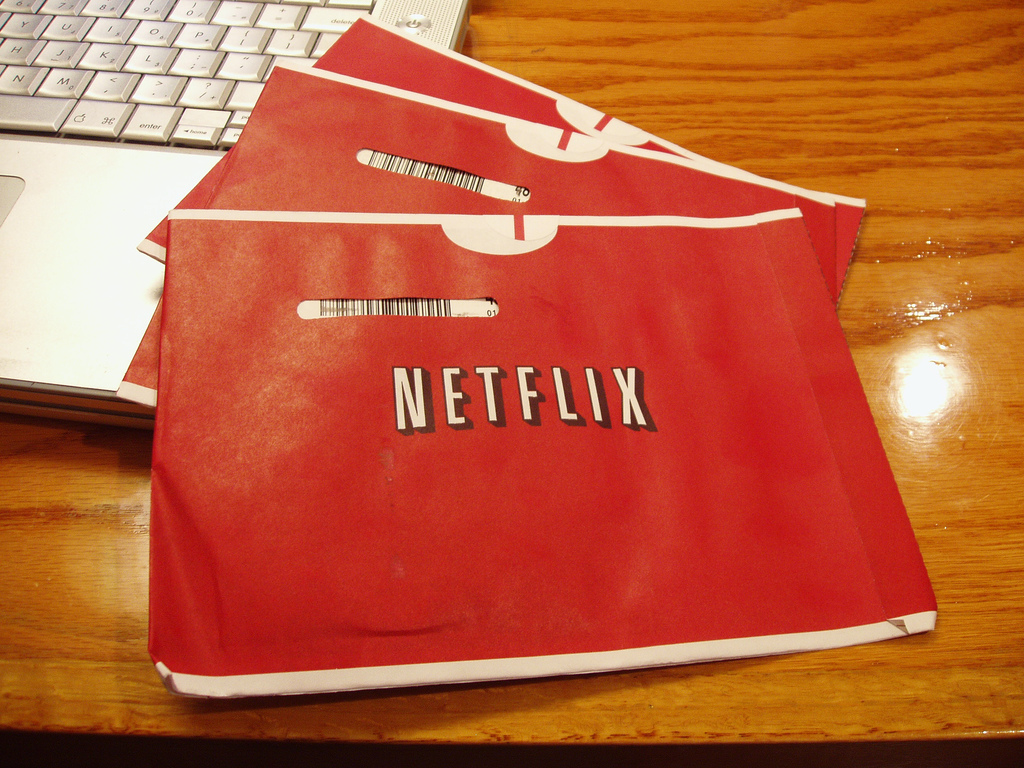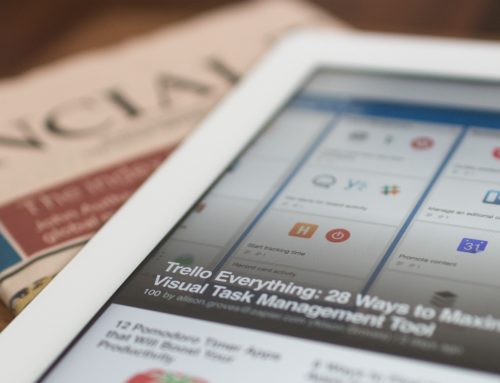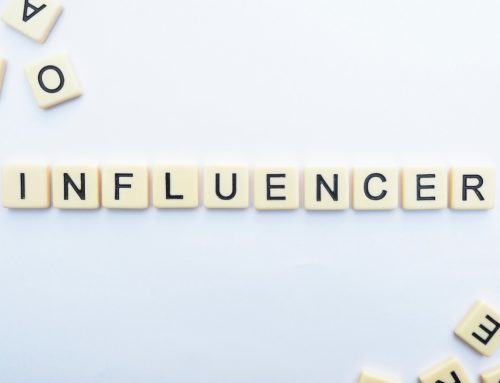 Netflix announced yesterday that it would end Qwikster, the company it spawned last month to handle its mail-order DVD service from its streaming service (splitting those apart happened over the summer).
Netflix announced yesterday that it would end Qwikster, the company it spawned last month to handle its mail-order DVD service from its streaming service (splitting those apart happened over the summer).
As you might imagine, there was a hearty round of, “I told you so!”, “Finally! Netflix does something right!”, etcetera, etcetera, etcetera. As you may have already guessed, I disagree with this decision.
Netflix proved this summer that it was a company that would choose to grow and adapt before the future arrived when it separated its streaming and direct mail services.
I could write an entire book on that decision (which I applaud), but I’ll stick to the topic at hand.
Ending Qwikster and bringing the direct mail segment back under the same roof simply confuses people as to which direction the company is heading.
Netflix CEO Reed Hastings (I’m paraphrasing here) said the company moved too quickly in spinning the direct mail side of the business into a different company.
What’s really amazing here is that practically everyone agrees that streaming media is the way of the future, and that DVDs are destined to become Gen Y’s version of the VCR.
If that’s true, then why is Netflix constantly beaten down for trying to push all of its customers towards online streaming?
There are different fees paid for streaming media and DVD, right? So, why wouldn’t you separate those two entities? It allows you to focus on these as two different companies, making negotiating easier and to take each business in the direction it needs to go.
Are DVDs going anywhere anytime soon? Probably not. And as long as there’s a demand there, you should be filling it.
When decisions regarding the future of your company are made based on shareholders, who are less concerned with the health of your company and more concerned with the stock price, that can end up crippling the company.
To be clear, I’m not saying this cripples Netflix.
In fact, Hastings basically said this is a mea culpa in a few months of what were, while correct business moves, terrible PR moves. All that said, I still believe that Netflix was on the right path.
I supported the decision to split DVDs and streaming and to launch Qwikster. It’s a shame that the right business moves were nullified because those moves were handled with the grace of a drunk elephant in a china shop.
What do you think? Am I off my rocker? (On second thought … don’t answer that one.) Let’s have it out in the comments.
Image: Laura Fries.com via Flickr, CC 2.0
![[EVENT]: PR Hacks for Small Biz (online)](https://shonaliburke.com/wp-content/uploads/2021/06/FB-Ad-1200x800-01-01-01-Copy-500x383.jpeg)








[…] This post originally appeared on Waxing Unlyrical on October 11th, 2011. […]
Sure, the different cost structure in the two businesses was their original justification for the split. And I think shareholder interests can often run counter to the long-term viability of a company. But it seems pretty clear that’s not the case here. Netflix simply didn’t understand that a large chunk of their customer base (myself included) like the service because it is one source for all of their movies. Netflix thought they were running two factories–one that streamed stuff and one that shipped DVDs–when in fact they’re running a grocery store. Grocery stores have lots of lines of business, and some–like produce, apparently–even lose money and are subsidized by other lines of business. The model works because a grocery store is the one place you can go to get your food. If anything, I think this is a sign that Netflix should consider diversifying further. Why not pay-per-view deals? Live streaming of sports? Educational seminars? Conferences like Ted or PopTech? Netflix has tremendous audience and is uniquely positioned, in my view, to become an alternative to cable. It’s been mine for–I just looked–seven years.
@parkview That’s an interesting perspective. However, I don’t think you’re quite right here. The thing about produce is that produce is something that won’t ever go away. Meaning, in 100 years, people will still be eating apples, green peppers, lettuce and radishes (but hopefully not Brussel sprouts). DVD’s are going away at some point in the future. Cutting their loses, upsetting some customers and moving into the future, I think, is a shrewd business move.
I think anything Netflix can gets the rights to stream should be up for discussion. Sports, award shows, original TV programming; you name it. I also support axing a segment of business that is destined to die off at some point.
That’s a good point. I should have said “fresh produce.” I suspect there was a time when grocery store managers thought (and probably hoped) canned fruits and vegetables (and later, frozen) might replace fresh produce. The “content” was the same, but the “form” was easier and cheaper to deliver and stock. Of course, grocery stores have the luxury of asking you to pay more or less what each thing you want to buy costs. For a long time, Netflix’s pay-one-price for everything didn’t allow them to actually treat DVDs and streaming as different lines of business that could be priced accordingly. As long as there’s stuff available on DVD that’s not available to stream, there’ll be customers for DVDs. Netflix has now successfully decoupled the pricing structure for the two and can just charge customers whatever it actually costs to provide the DVD service.
@parkview Exactly my point. I think that Netflix, while upsetting people in the short term, is setting itself up for maximum profits and success in the long run.
I havent followed this at all, but what were they trying to do get more organized?
@mindrise I’m not sure it had anything to do with getting more organized. I think it had to do with setting the company up to succeed in the long term.
It feels a little bit like they are out of control and that isn’t going to make anyone happy.
@TheJackB That’s tough to argue with. I will say that I’m not sure making people happy was ever in the cards. i think they were setting up for the future, forcing their customers into that future before (some) of them were ready. What we saw last week was a reaction to the negative PR they’ve had; and that’s a mistake in my mind. Apologize for moving so quickly, but reversing your course when you know it to be the correct course is bad business in my mind. Even if that upsets some of your customers.
I agree with you. Unfortunately, I must be the only one I know that was happy with the Netflix decision. I only stream movies, never have DVDs come in the mail, so was happy that my bill went down. I was glad to no longer pay for a service I did not use. Now, I am back to paying for two services when I only use one just because some pitched a fit. I will probably stay with Netflix, but I was definitely behind their move. Perhaps if they would have just at first split the cost so that people were not paying more if they wanted both services, they would have had more success. They could have slowly raised their prices later. :(
It’s only a good move if the titles available for streaming are the same as those available for hard copy renting , which they are not yet. Want a new-release? Too bad: see Qwikster. Many of my friends frequently say they can’t find anything to watch on the streaming service. I get what they’re saying. Not everyone is happy with old Dr. Who and X-Files episodes. Me? I’m in streaming heaven. But I’m hardly mainstream.
Nearly as important a concern as the lack of richness in the library – believe it or not , many, many people do not yet have the ability to stream onto their HD televisions and until that trend is more widespread, not too long from now, but still not quite yet, it will not make sense to complicate the service. They will lose customers who just don’t want to bother with the inconvenience but still want an HD or cinematic experience, as opposed to crowding the family around their tablet or iPhone. An effort to force convenience cancels itself out.
Personally, I watch episodes of previous TV seasons streamed to my 3DS (Yes, I like the little thing.) just fine, and my Samsung TV streams Netflix, both features I love, but when I want to watch something with more wide appeal with the rest of the family, or with friends, I often have to rely on the mail service.
As for many others, after their next HD TV purchase, when streaming is easy for them, they’ll recognize the benefit – but it’s too early.
You could make the case that it’s smart for Netflix to push its customers to make those purchases and save itself money, but this is a bad economy for a maneuver like that, sensitivity to which reality is where, I think, some of this ire is coming from.
The main problem though is still that the quality of the service did not justify the price hike or the proposed complications of a provider-split.
Offer a complete library via streaming when people can easily accommodate it with their TV’s, and they’ll lap it up.
@projectmarathon I agree, Netflix absolutely must fill its streaming library up, and do it fast. Still, I just can’t get behind the idea of supporting a business model that has no future but to die off eventually (DVD’s)
It’s quite simple actually. As a publicly traded company, Netflix has an obligation to its shareholders. Take PR and all that jazz out of the equation — none of that matters. What it boils down to is, if Netflix felt that Qwikster was a bad business decision (we can debate that all day long), and wouldn’t be profitable for the company and its shareholders, then yes, it should had abandoned it. Simple as that. We talk all day about the PR side of things and making sure we meet customer’s needs…what people fail to realize is that a company’s shareholders are equally as important.
@kmskala Good points Kasey. Responsibility to the shareholders is absolutely key; but what if you’re hurting the long term profitability of the company for short term gains? Sometimes shareholders don’t always know what’s best. I can’t imagine that the majority of Netflix shareholders are knowledgeable about the future of online streaming of media. They see a steep drop and immediately panic. Not saying that’s a response that was wrong, simply that the people in control of the company usually know what’s best. I think in this case the company should have told the shareholders to just be patient. That’s my point.
@kmskala Responsibility to its shareholders? How does that work when the company makes a decision without asking its shareholders in advance? Had they done so, we wouldn’t be debating this.